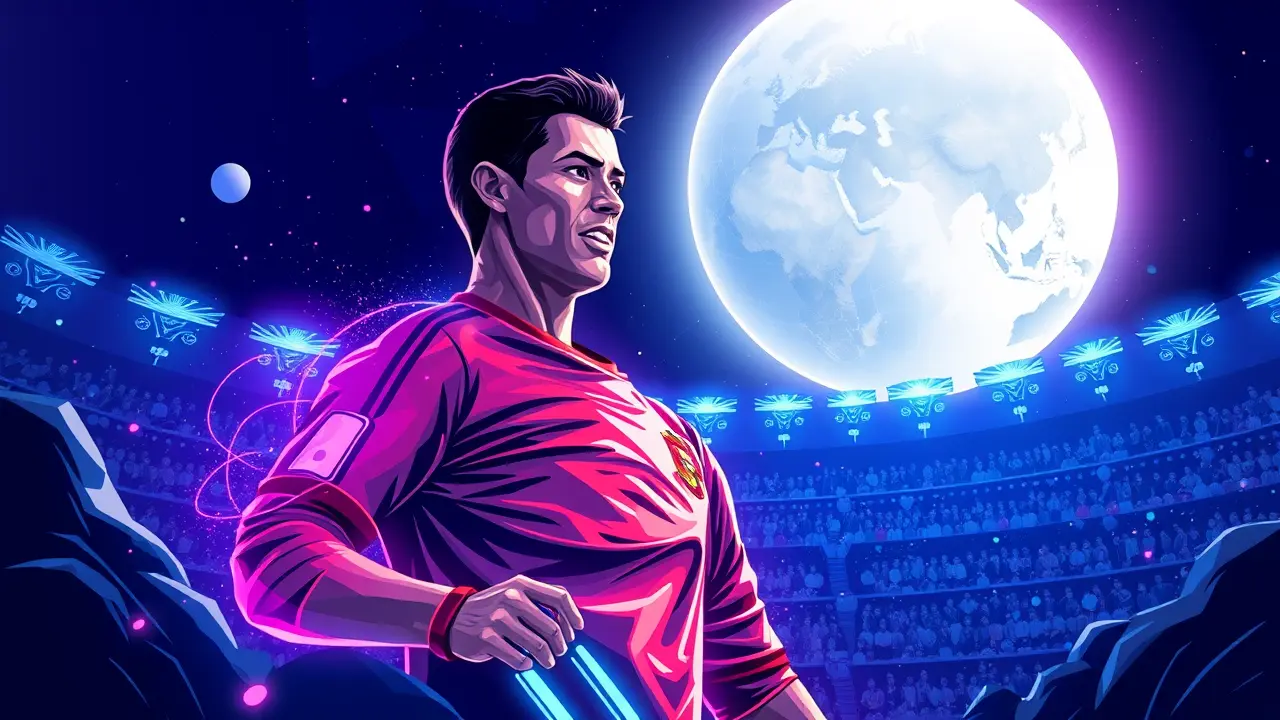Ronaldo becomes billionaire, SKA's fifth loss, Medvedev in Shanghai quarters.
The landscape of global sport is once again being redrawn by its titans, and in a move that feels both inevitable and epoch-defining, Cristiano Ronaldo has shattered another ceiling, becoming the first footballer in history to officially join the billionaire's club. With a net worth now soaring to a staggering $1.4 billion, as confirmed by the Bloomberg Billionaires Index, the 40-year-old Portuguese forward’s latest contract with Al-Nassr, a deal reportedly worth over $400 million signed in June, has cemented a financial legacy that arguably rivals his on-pitch achievements. This isn't just a paycheque; it's a monument to a career built on relentless self-belief and commercial genius, a testament to how a single athlete can transcend his sport.His concurrent receipt of the Globo Prestígio award for 22 years of service to the Portuguese national team feels like a poetic full stop on one chapter and the bold opening of another, where his influence will be measured not just in goals, but in economic impact. Meanwhile, the tectonic plates of hockey continue to shift, with the mighty SKA St.Petersburg suffering a staggering fifth consecutive defeat, this time a 2-1 overtime heartbreaker at the hands of Avtomobilist. This isn't a mere slump; for a club of SKA's calibre and financial muscle, this is a full-blown crisis, a narrative of a dynasty potentially crumbling under the weight of expectation, reminiscent of the late-career struggles of great teams that failed to adapt.The contrast is stark in the NHL, where Washington Capitals' legend Alexander Ovechkin, another athlete whose name is synonymous with his sport, was held off the scoresheet in a 3-1 loss to Boston, a quiet night that underscores the immense challenge he faces in his historic pursuit of Wayne Gretzky's goal record. Yet, in the same league, a new star announced his arrival with flair, as Vegas's Pavel Dorofeev netted the season's first hat-trick in a thrilling 6-5 shootout loss to Los Angeles, a performance that echoes the breakout moments of a young Ovechkin or Pavel Bure, a reminder that while legends write their final chapters, new heroes are always being drafted.On the tennis courts of Shanghai, the ever-combustible Daniil Medvedev, a player whose tactical brain is as fascinating as his on-court eruptions, powered into the quarter-finals with a win over Learner Tien, but it was his subsequent, expletive-laden tirade over a time violation that captured headlines. His raw complaint—'I've waited 55 seconds for Nadal my whole life, he never got a warning'—was more than just frustration; it was a window into the perceived inconsistencies and psychological warfare that define the modern game, a debate that pits the cold logic of the rulebook against the fiery passion of its gladiators.He joins a formidable last-eight lineup including Novak Djokovic and Holger Rune, setting the stage for clashes of a calibre that could define the season's end. Back in Russian football, Zenit's midfielder Maxim Glushenkov was rightly crowned the RPL's Player of the Month for September, his haul of 6 points in 3 matches, featuring a stunning four-goal performance, signalling the rise of a homegrown talent in a league grappling with its identity.This internal development comes amid significant external pressures and policy shifts, as Russian Sports Minister Mikhail Degtyarev announced a proposed 9. 6% increase in the federal sports budget for 2026, bringing it to 74.5 billion rubles, while proudly proclaiming that 61. 3% of Russians now regularly engage in sports—a statistic he frames as a validation of state policy.However, this nationalistic push was further emphasized by his justification for tightening the foreign player limit in football, a controversial stance defended with the argument that without such protection, youth development would be neglected. This perspective was immediately challenged by hockey legend Vyacheslav Fetisov, who questioned the ministry's overreach, asking why sporting federations staffed with specialists weren't making these critical decisions, a debate that cuts to the very heart of how sport is governed in the country.The ripple effects of geopolitics were felt elsewhere, as Russian swimmers were forced to withdraw from World Cup stages in the USA and Canada due to 'organizational difficulties,' a familiar euphemism in today's fractured sporting world. On a broader stage, the European Parliament voiced its growing concern over the influence of foreign capital, issuing a defensive statement in support of a 'European model of sport' that prioritizes the voices of athletes and fans—a clear preemptive strike against the NBA's anticipated expansion into Europe in 2027 and the Euroleague's own global ambitions, evidenced by its successful Final Four in Abu Dhabi.In lighter news, the 2026 Olympics found its mascot in Sega's blue blur, Sonic the Hedgehog, a pop-culture crossover that feels perfectly tailored for a generation raised on digital heroes. The day's quotes provided their own drama, from Kylian Mbappé's mother revealing her son's monastic dedication to football, to Artem Dzyuba's fiery pre-match pep talk to his Akron teammates, and Petr Yan's promise of a fully-prepared revenge bout.But it was Medvedev's gripe and Fetisov's critique that resonated most deeply, highlighting the eternal tensions in sport: between rules and passion, between centralized control and expert autonomy. In the end, from Ronaldo’s financial summit to SKA's deepening valley, from Medvedev's fury to Degtyarev's decrees, the narrative remains the same—sport is not merely a game, but a relentless, multi-billion-dollar theater of human ambition, policy, and power, where every victory and every loss writes a new line in a story that is forever unfolding.
CR
CR7Stan4Life12 hours ago
ronaldo is literally a money printer at this point man's out here playing football on god mode and business mode simultaneously
0
© 2025 Outpoll Service LTD. All rights reserved.
